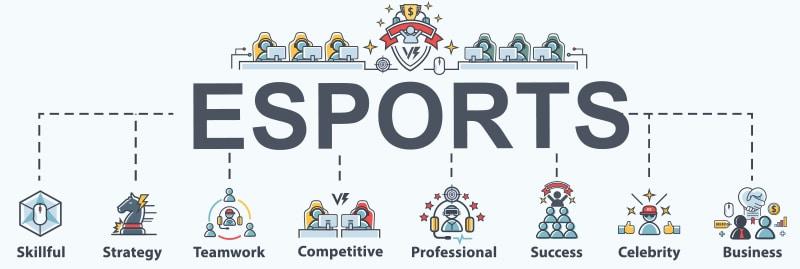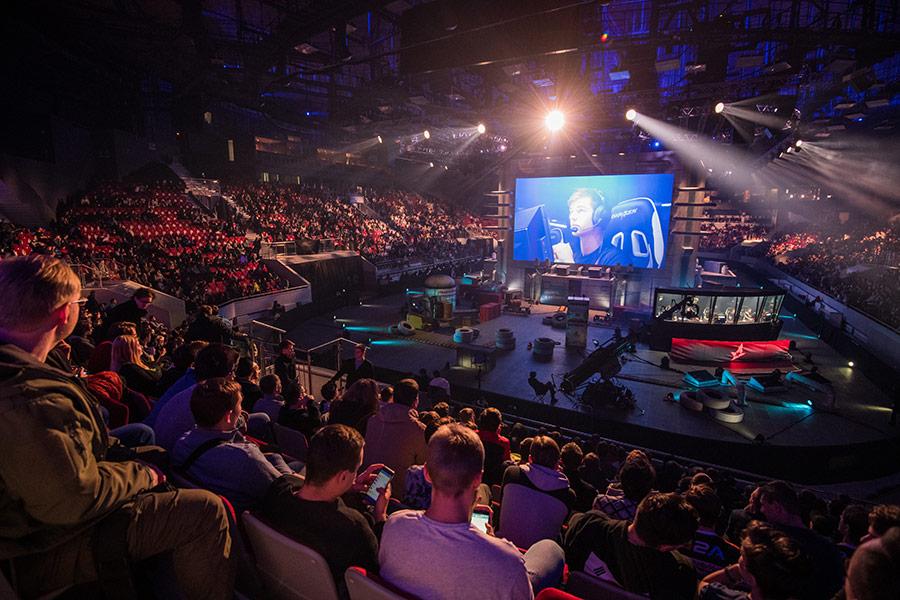Is eSports a sport? Why eSports is a sport for everyone

Lately, there have been heated debates regarding whether esports is truly a sport. The gameinside.ua portal has decided to explore this issue from two opposing perspectives and has also sought comments from several experts. To determine whether esports truly qualifies as a sport, let’s examine the concept of sport.
According to Wikipedia, sport (from the Old French word desport, meaning game or entertainment) is an organized activity governed by specific rules, involving the comparison of individuals’ physical or intellectual abilities, as well as the preparation for such activity and the interpersonal relationships that arise during its process.
In simpler terms, sport is intended to enhance physical and psychological skills, elevate intellectual prowess, provide moral satisfaction, strive for perfection, improve personal, group, and absolute records, and attain glory.
Table of Contents
eSports is a sport
Based on the definition, clear similarities can be observed between traditional sports and esports. First and foremost, both involve a competitive spirit and a desire to excel.
For our website, the CEO of the esports organization HellRaisers, Alexey xaoc Kucherov, expressed his viewpoint and explained why he considers esports to be a sport:
Here, more than 10,000-seat stadiums are filled, with over 24 million dollars in prize money at a single championship, and games are watched by over 10 million viewers simultaneously. Young players look up to their idols, work on themselves, and sometimes sacrifice their education to achieve results. When the interest in this activity is so immense, when it has an incredibly engaging competitive aspect, it can only be called a sport.
I’m willing to bet that many have found themselves thinking, How can we call esports players athletes? They do nothing but move a mouse and press keys on a keyboard. It’s important to understand that sport is not limited to physical exertion. Otherwise, chess players couldn’t be called athletes because all they do is sit for hours in front of a chessboard moving pieces. The same goes for curling and numerous other examples.
This opinion is shared by Starladder’s CS:GO analyst, Alexander petr1k Petrik, who kindly agreed to provide his comment on the matter:
Naturally, esports is a sport. It is a modern and intellectual sport. I believe that not only technology and science but also sports should evolve in this world. And esports serves as a vivid example of the evolution of sports from physical to intellectual. The trend may seem alarming, as sitting in front of a computer is considered harmful. However, even traditional sports, when practiced excessively, can be more detrimental to health than beneficial. For me, sport primarily involves competition and the pursuit of developing certain skills. This is present in esports.
Many professional Dota 2 or CS:GO players spend 10-12 hours a day honing their skills in front of monitors. Not every football player can boast such an intensive training schedule. Some esports teams play far more official matches in a week than football clubs do. In esports, just like in traditional sports, team cohesion, reaction time, and the ability to anticipate opponents’ actions are crucial. In big sports, there is more money involved. The same can be confidently said about esports. For example, the prize pool for the largest Dota 2 tournament, The International 2017, mentioned by Alexey, amounted to over $24,000,000. The team Liquid, which took first place, received a cash prize of $10,862,683. Each team member earned approximately $2,000,000.
Expensive contracts and staggering transfers are also a part of esports. Bosnian CS:GO player Nikola NiKo Kovač moved from mousesports to FaZe Clan for a record-breaking sum of $1,000,000. It’s hard to believe that someone who simply sits in front of a computer and plays a game would receive such an incredible amount of money. However, all of this is a reality, and in the near future, esports prize pools, contracts, and transfer fees will only continue to grow.
Most importantly, more than 20 countries worldwide have officially recognized esports as a sport, including China, Russia, France, Italy, and even Nepal!
eSports is not a sport
Cybersport is not a sport. I’m indifferent to it. It’s a game, just like chess. Who can pee further among children can also be considered a competition. And I comment on the competition of people: how tired they are or aren’t, how much pain they feel or don’t feel, how much energy they have left, whether they are pushing themselves, and what happened to them in the previous match. But cybersport is a competition of avatars. I’m not interested in that; I’d rather read a book. I want to emphasize that it’s a fascinating pastime and millions of people engage in it. But that alone doesn’t make the endeavor very interesting. At least an activity like masturbation also arouses great interest among millions of people.
This is the viewpoint of the renowned Russian football commentator Vasily Utkin. It’s worth noting that Vasily was the official Russian announcer for the FIFA football simulator, which has long been considered an esports discipline. Vasily Utkin equated cybersport to masturbation using derogatory language.
Sports journalist and commentator Alexander Shmurnov also speaks unfavorably about esports, believing that sports are primarily about athletics. Here’s what he says on the matter:
Sport is primarily about athletics, harmony in its ideal form. From pure athletics, running, weightlifting, through technical disciplines such as throwing, rowing, then through combat sports, individual gaming sports, team non-contact sports, and finally to hockey and football – sports have developed and continue to develop, becoming increasingly intellectual and complex, but still maintaining their core – athletics. At the top of the sports hierarchy are the disciplines where strength, endurance, and agility are in complete harmony with reaction, calculation, combination, the ability to study, track opponents, and learn from them to ultimately win. The journalist also believes that there is a lot of promotion of cruelty and violence in esports games, which can impact a person’s psyche.
What also greatly annoys me about the widespread enthusiasm for games like Counter-Strike or Dota – let’s call them shooters – is the bloodthirstiness of the interface. In Dota, the winner is the one who destroys the opponent’s main building. The goal of Counter-Strike is to eliminate as many opponents as possible, while also fulfilling certain objectives. All the blood that pours out of the screen – it’s all hyperbolic brutality, albeit virtual – it cultivates qualities in people, especially in large doses, that have always been and will remain taboo in our family.
A strong statement, isn’t it? But if you think about it, are Dota or CS more violent than boxing, for example?
In conclusion, it’s worth saying that there are as many opinions as there are people. Generally, the idea of esports is not supported by old-school people and conservatives who are not keeping up with the times and consider computer games to be mere child’s play. Nevertheless, esports is developing rapidly and borrowing many elements from traditional sports.
And what do you think, dear readers, should a gaming mouse be equated to a baseball bat or a keyboard to a golf club?






